A sensor comparison
The folks at DxO have finished their comparison of the T1i/500D and D5000 sensor.
The winner? The fiesty D5000!
Thanks Jason! (I wasnt unwilling, I just honestly forgot during my travels.)
cr
|
When you purchase through links on our site, we may earn an affiliate commission. Here's how it works. |


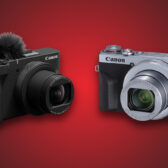
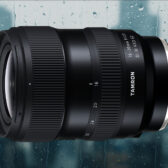
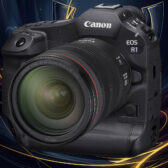
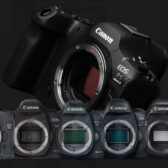

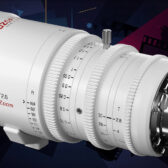

Two thoughts,
First, you compare quality between a 12mp 1.5 crop sensor vs a 15mp 1.6 crop sensor, I would have been surprised if the Nikon sensor didn’t win. This just continues to support that bigger pixels result in higher quality.
Second, DXO concluded that the Nikon sensor only had a slight advantage over the Canon. So Canon did good.
Now, you just have to wonder what Canon could do with a 16mp 1.3 crop or a 16mp FF sensor. I wonder if Canon will ever stop the MP wars and make these two sensors.
Dave
Isn’t DxO a crock of crap?
Image quality rated by physics. Sweeeeeeet.
Is that comment meant to be ironic?
“Canon did good” what good did they do?
Did they donate some proceeds to charity?
Canon did well :)
I will remind you next time – especially if the results are similar :)
Funny I thought the same thing when I read it!
I’m just not pathetic enough to bring it up.
;)
I agree with Dave’s interpretation. It seems Canon has better tech, they just aren’t making good decisions about how to implement it
Let’s make it simple, if you want to win your sensor should have one pixel only.
Check here for more thoughts on quantitative measurement of sensor performance
LOL! I want a single photosite full frame DLSR with ISO 1638400. I think that would actually ADD light to the scene.
Actually, more photosites is a advantage. Canon may have only ranked as high as it did due to having more photosites. There does seem to be a slight shortcoming in the Canon sensor that is partially compensated for in the software. Since DXO tests using the sensor raw output, this type of thing can no longer be hidden.
Even so, the difference between the sensors is negligible, both are very good. As the technology matures, the differences will continue to be very small, no one is going to thrash the other like in the past.
NIGE. why dont you just choke on my nutz. you putz
Sorry, usually I proof read, so 1 for the grammar police.
Dave
Sproutey – thanks for clarifying my post with that well argued comment, based on a sound understanding of how to interpret DxO data. I can’t compete with the eloquent way that you’ve contributed to the debate on this page, but since you seem to be trying to argue against the usefulness of DxO, here’s my opinion.
The transmission of light through the optics, the conversion of photons into charge in the imaging device, and the way that charge is read out, are all processes described by physics. More to the point, the analysis of the final image, which will contain the effects of whatever image processing algorithms the camera applies to the raw data, relies on proven statistical techniques which are used throughout the technical world in disciplines such as medical imaging and astronomy. In these fields, quantitative evaluation of the image has a real meaning (astronomers take pixel-peeping to new levels – but for good reasons). Many of the measurements provided by DxO adopt the same statistical approaches used in these fields. And some of these measurements have a direct relation to what we perceive as “image quality”.
What kind of “feel” an individual likes in a DSLR image is a matter of personal preference, and ultimately, personal preference is the *only* criterion that matters when choosing a camera for personal use. Perhaps this is what you’re trying to get at – I can’t tell from your posts – but if so, then yes, I completely agree – you should choose the camera you prefer, irrespective of what the reviews or specifications say. But people like to compare the performance of different cameras before buying, and unless you’re in the very fortunate situation of having access to all the models you’re considering, and time and money to make the comparisons, this means reading reviews and opinions. Here, personal preference is not always helpful, because by definition, it’s subjective – people differ in what they like about an image. So when reading reviews, we tend to look for consensus of opinion, or seek out reviews from particular individuals who are respected in the photographic community – though they themselves are usually applying their own preferences in a review. Therefore, having an impartial means of comparing camera performance based on a strict interpretation of statistics in a set of “standard” images is an extremely useful resource, and a completely valid method of making those comparisons. You don’t have to use it, and you might not like the answers you get when you do, but I don’t follow your argument against using physics to provide a metric of image quality.
I’m a Canon 10D user with a few lenses, planning to upgrade, and for financial reasons I really don’t want to switch to Nikon – so I’m disappointed that (for the kind of photography I like to do), Nikon currently has an edge. Cameras come and go, and that situation will change. But when a comparison doesn’t throw up the answer you want, I don’t think shooting the messenger, whether that be an independent reviewer or the methods adopted by a particular website, is a very intelligent response.
i like to give hummers to old men
Canon has nearly 3 years since the D3 came out to take another step forward in specs , if the details here are correct they are in trouble.
Ditto in some spots, not so mutch in others.
I think 10 to 12 is a great nuber (although an 8MP FF would be aawwssoooommme)!
Dxo is interesting: applying a numerical rating to sensor performance. I think it is worthwhile to qualitatively compare sensor characteristics, but the numerical ratings are pointless. Their findings should be backed up with real life examples where you can see a difference, otherwise it’s purely academic.
On a separate note: Canon, get your act together.
That would be one big pixel.
Actually this is bad news for the Nikon, according to DXOMark itself:
http://www.dxomark.com/index.php/eng/Insights/More-pixels-offsets-noise!
Bottomline, the 500D sensor is better since it is either equal or close to the D5000 sensor even with smaller photosites plus 3 more MP.
if these are targeted for consumer market, then the 16mp raw file of canon 500d is photoshop/hardrive-unfriendly.” canon could have added sraw feature from its midrange dslr family and up. nikon is arguably right on the money with 10-12mp raw file size. its the sweet spot for the entry & advanced post-processing. shame on canon for having a 16mp but very big raw file sizes for CONSUMERS without any flexibility to its raw file size.
raw is not intended for consumers.
Nige has eloquently written about all the thoughts I have when it comes to deciding between the T1i vs. D5000. Best of all, he has helped me take a step further in the right direction.
Thanks Nige!
PS Sproutey, it is obvious you are the one who choked.
+1
If we are correcting grammar, it probably should be spelled out, one for the grammar police. :)